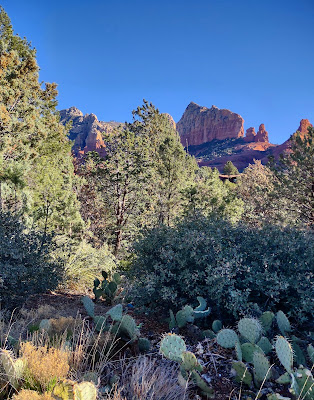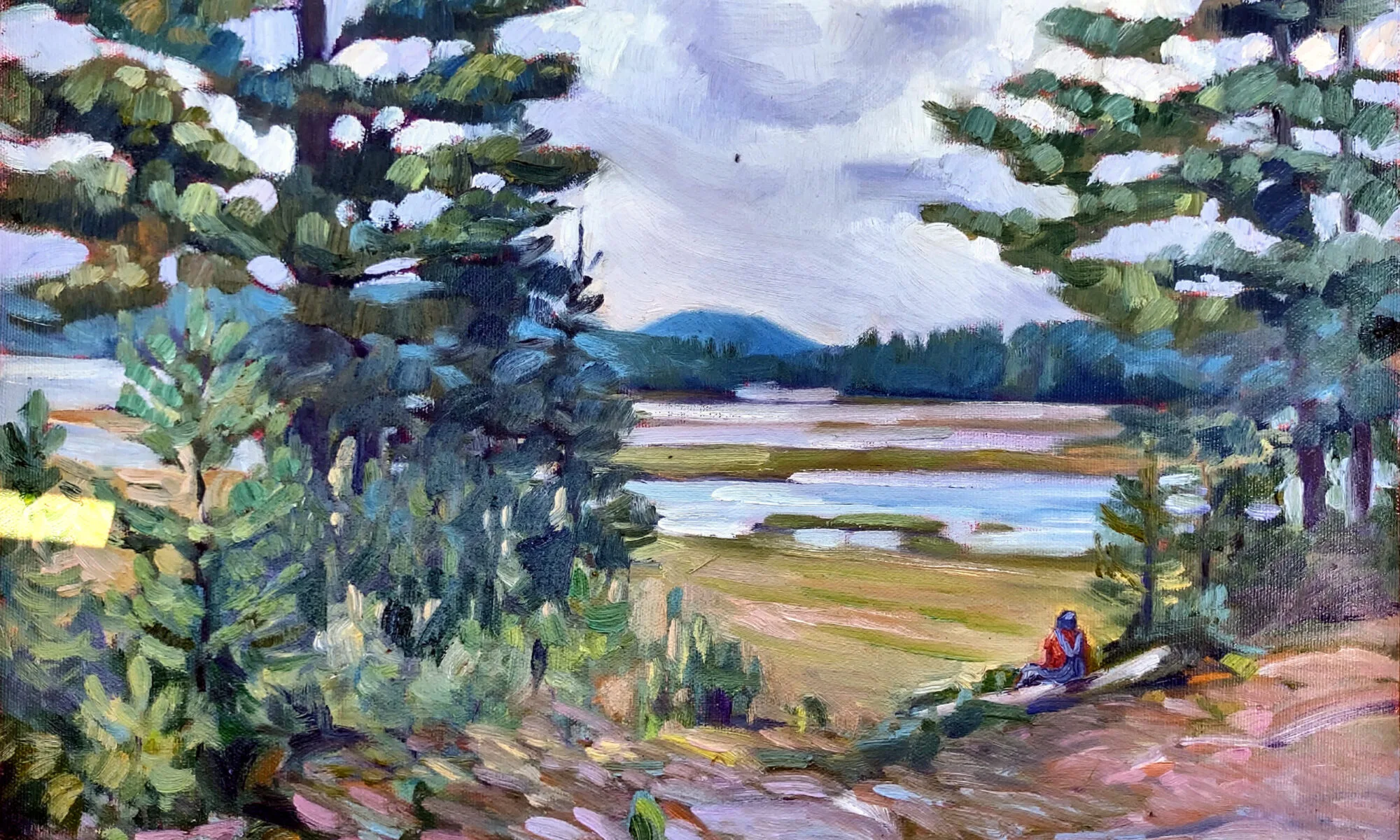“It’s not about measurable facts, it’s about what you know in your gut is real.”
 |
| The only thing I’ve managed to paint this week has been this 9X12 demo. |
Painters and photographers know there’s a dead period in the middle of the day. The long raking shadows of early morning or the beautiful golden light of afternoon are ideal for building a composition and matching colors. The harsh midday sun, with its bleached color, is more suited for listening to the instructor drone on.
In Maine, that dead hour hits at about 11 AM. Here in Sedona in March, it’s been showing up about 1:30 in the afternoon. Arizona is in Mountain Time, but they don’t observe Daylight Savings Time (DST), except in the Navajo nation. That puts us three hours behind Maine, where we just switched over to DST ten days ago. Neither my body nor my mind has any idea of what time it is.
 |
| The Sedona Arts Center is a very lovely facility in which to teach. (Photo courtesy Ed Buonvecchio) |
I’m in Sedona teaching a six-day workshop through the Sedona Arts Center. The star of the show is, of course, the place. Sedona is a village of 10,000 people plopped down in the clefts of spectacular eroded red sandstone. As it weathered over the eons, it left buttes that rear up from 800 feet to 1,000 feet high. Twisted and carved by wind and water, they loom over the town in every direction.
This is probably why Sedona attracts a variety of spiritual and alternative-medicine practices. There are four areas which are called by the “vortexes”, described as “swirling centers of energy that are conducive to healing, meditation and self-exploration.” They’re all conveniently located where the hiking is easy, so tourists can get there without a lot of extra work.
 |
| Red rock spires are everywhere, looming over the town. |
The vortexes were made famous in 1980 by psychic channeler Page Bryant and her spirit-world sidekick, Albion. According to her blog, Page “offer[ed] a number of services, including intuitive readings, Star Charts, subscription-based channeled messages from her spirit teacher, Albion, and private lessons on a wide range of topics. She also [sold] her beautiful knitted, crocheted, and beaded work and her custom-designed jewelry — all of which has been inspired by working with the ‘wee people’ (fairies and elves).”
Bryant studied under Sun Bear, a self-proclaimed medicine man of Ojibwe descent. Sun Bear’s theology was a mishmash of various indigenous traditions, and traditional healers repudiated him. He attracted spiritual seekers from outside his community. They paid handsomely for the privilege. The heirs of Bryant and Sun Bear are classic American entrepreneurs bringing salt-healing, channeling, and other New Age mystical experiences to roughly three million visitors a year.
I’m a spiritual practitioner myself. I don’t think the metaphysical is testable. However, my own practice (white-bread Christianity) makes no claims to energy. In physics, energy is the capacity to do work, and that’s measurable.
 |
| Me, teaching. (Photo courtesy Ed Buonvecchio) |
A brief search of the internet revealed no scientific literature on the subject, but certainly sucked me into a swirl of believers. As one wrote, “It’s not about measurable facts, it’s about what you know in your gut is real.”
Seeking God in nature is, in fact, an ancient spiritual practice. Job, the oldest book in the Bible (and therefore the oldest continuous religious text in existence), says:
“But ask the animals, and they will teach you,
or the birds in the sky, and they will tell you;
or speak to the earth, and it will teach you,
or let the fish in the sea inform you.
Which of all these does not know
that the hand of the Lord has done this?”
It’s impossible to be in this majestic place and not see God’s handiwork. I’ll be generous and believe that’s the truth that Bryant and Sun Bear were muddling towards.
